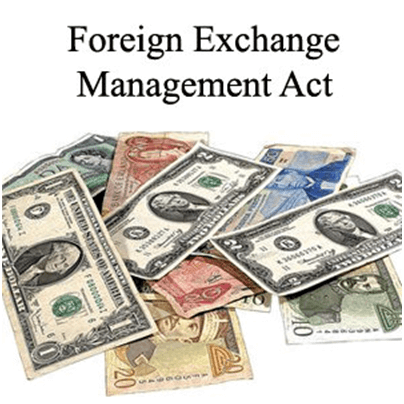What is the full form of FEMAFEMA: Foreign Exchange Management ActFEMA stands for Foreign Exchange Management Act. It was introduced to replace the earlier Foreign Exchange Regulation Act (FERA) as FERA was not compatible with post-liberalisation policies. FEMA was passed in the winter session of Parliament in 1999. It became an act on 1 June 2000. According to this act, all offenses related to foreign exchange are civil offenses as opposed to criminal offenses, according to FERA. 
Its head office, which is called Enforcement Directorate, is located in New Delhi. It has five zonal offices, which are located in Delhi, Mumbai, Chennai, Kolkata, and Jalandhar. Each zonal office is headed by the Deputy Director. Each Zone is further divided into seven sub-zonal offices and five field units. The sub-zonal office is headed by Assistant Director, and the field unit is headed by Chief Enforcement Officer. The key objective of the FEMA is to consolidate and amend the laws related to foreign exchange to facilitate external trade and payments. The other objective for which it is formulated is to promote the orderly development and maintenance of the foreign exchange market in India. FEMA is applicable throughout India. It is also applicable to all offices and agencies which are outside India but owned or controlled by a person who is a citizen of India. Main Features
History of FEMA:FEMA was first implemented in 1999 to replace FERA, which had grown antiquated and had received criticism for being overly restrictive. To regulate foreign exchange operations and stop capital from leaving India, FERA was established in 1973. But over time, FERA had grown overly inflexible and had erected many administrative barriers in the way of people and businesses that sought to conduct foreign currency operations. FEMA, on the other hand, was implemented with the goal of liberalizing India's foreign exchange policy and making it simpler for individuals and corporations to conduct foreign exchange operations. FEMA sought to establish a more open and market-oriented foreign exchange policy that would support India's economic development and progress. FEMA's rules:FEMA has a number of significant rules that govern foreign exchange transactions in India. Among FEMA's most important rules are the following:
Role of FEMA in the Indian Economy:FEMA regulates foreign exchange operations and facilitates international commerce and payments, which helps it play a significant role in the Indian economy. FEMA has aided in the liberalization of the Indian economy and in luring foreign capital into the country. FEMA has made it simpler for companies to deal in products and services as well as for people to go abroad and remit money to their families by allowing for liberalized current account activities. Additionally, FEMA has been crucial in regulating capital account operations and halting the outflow of funds from India. FEMA's stringent enforcement policies have assisted in preventing money laundering and the improper use of foreign currency transactions for illicit purposes. Conclusion:In conclusion, FEMA is a crucial component of the legislation that controls international financial activities in India. It has been essential in liberalizing the Indian economy and fostering development and progress. FEMA has made it simpler for people and companies to conduct foreign exchange transactions by offering a flexible and market-oriented foreign exchange system. This has also stopped foreign exchange transactions from being used for criminal activities. Overall, FEMA has played a significant role in the development of the Indian economy, and its significance is only expected to increase going forward.
Next TopicFull Form
|
 For Videos Join Our Youtube Channel: Join Now
For Videos Join Our Youtube Channel: Join Now
Feedback
- Send your Feedback to [email protected]
Help Others, Please Share










